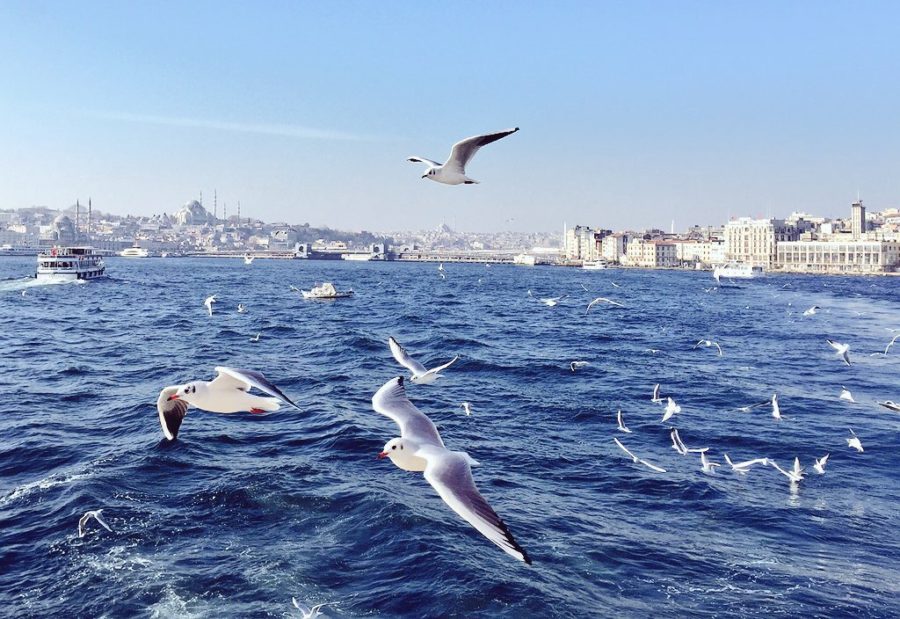2nd June 2014
Reptiles, fairies, conspiracies and cock-ups

Did US spacecraft Apollo 11 really land on the moon in July 1969? Was the death of Diana, Princess of Wales, an accident? Are many world leaders in fact shape-shifting reptilians?
Back in August I wrote a blog called “Why Turkey can be confident”. I set out why I was so impressed by this wonderful, welcoming country; and by the hard work, business acumen, passion, cuisine, history and culture of Turks.
I got good feedback, including some saying I was being too positive about Turkey and some saying Turkey didn’t need help from outsiders to develop further.
In that blog I said that: “against the background of a century of progress and achievements, Turkey deserves to feel confident in its ability to determine its own destiny”. This is an important point. Barring unexpected cataclysms, the future of Turkey will be determined primarily by Turkish people.
This is because Turkey is a big country with a powerful economy which should be, and is, playing an influential role in regional and world affairs. This is good for Britain because, as I argued in the earlier blog, a prosperous, stable, democratic Turkey will help make the UK itself – and the rest of the world – more secure and more prosperous. Poor, unstable countries tend to make Britain less secure and prosperous.
Despite such obvious and welcome Turkish strength I often see friends or commentators arguing that what happens in Turkey is in some way determined by external actors. Often, these arguments go further into “conspiracy theory” territory, arguing that such external actors are secretly carrying out their evil plans because they have a covert, anti-Turkish agenda.
Often, such theories are mutually contradictory.
For example, during last year’s Gezi protests, some commentators argued that “the West” had encouraged or even initiated the protests in order to weaken Turkey, which otherwise threatened to become too powerful. Others argued that, on the contrary, “the West” was pleased to see the protests put down because they wanted maximum Turkish economic growth to contribute to the triumph of global capitalism.
Similar contradictory theories argued on the one hand that “the West” was not criticising police action against Gezi protestors because it saw Turkey’s “mild Islamism “ as a model for the region. Others argued that “the West” was vigorously urging police restraint against demonstrators because it hoped the protests would over throw the authorities.
Of course conspiracy theorising is not a particularly Turkish phenomenon. There are plenty of people in the USA who are convinced that the United Nations has a secret plan to take over that country; or that the Apollo moon landings never happened. Polls have shown that as many as a quarter of all British people believe the Princess of Wales was murdered, despite all the evidence to the contrary.
Nor does the fact that conspiracy theories appear in newspapers mean that people actually believe them. One Turkish editor cheerfully told us recently “of course these theories are nonsense. But they help sell newspapers.”
There are also good reasons why some people tend to believe conspiracy theories.
One is that history is full of genuine conspiracies. Another is that people in some countries feel themselves disempowered, or weak, compared with what they perceive as other countries which are arrogant, or powerful, or both. People who feel that whatever is happening is beyond their own control are more inclined to think that those events must be under the control of someone else.
Personally, I quite like the idea of dark powers and hidden parallel universes. I recently watched “A Midsummer Night’s Dream” in Istanbul and was inspired as always by the idea that our actions are controlled and manipulated by mischievous fairies.
But sadly, these days, genuine conspiracies are vanishingly rare. Where they do arise – as in the case of Russia pretending that its troops were not leading the seizure of Crimea – the truth usually comes out swiftly.
So given a choice between a conspiracy and a cock-up to explain an event, I, and I suspect most diplomats, will always assume the latter – unless we see evidence to the contrary. This belief system is echoed by Sod’s Law – the adage that “anything that can go wrong will go wrong” and what Wikipedia calls “the simple existential observation that life is full of unpredictable events” – in the vernacular, shit happens. There is also the elegant Hanlon’s Razor: “never attribute to malice that which is adequately explained by stupidity”.
It’s in the nature of conspiracy theories that they can’t be disproved. The fact that I’m writing this blog could be cited as evidence that all the conspiracy theories cited above are in fact true (except, possibly, for the reptiles).
But next time you’re considering a conspiracy theory, consider whether Sod’s law or Hanlon’s Razor might explain things better.
It’s also worth considering the risk that giving credence to conspiracy theories encourages a dangerous passivity. If you believe that all-powerful dark forces control everything that happens, why should you try to change things – or in fact do anything at all?
What about Turkey?
Consider these questions:
– is 21st Century Turkey, to quote my earlier blog, “ a stable, economically powerful democracy” which can “feel confident in its ability to determine its own destiny”?
– is Turkey a country whose internal affairs are primarily the result of decisions made by Turkish people inside Turkey, and the responsibility of Turks?
I would answer a resounding “yes” to both questions. In my humble opinion, Turkey can be confident about its role in the world; and take pride in the fact that Turkish people, rather than shadowy and usually imaginary foreign forces, will determine the future of this country.
A strong country doesn’t need to rely on conspiracies to explain its destiny.